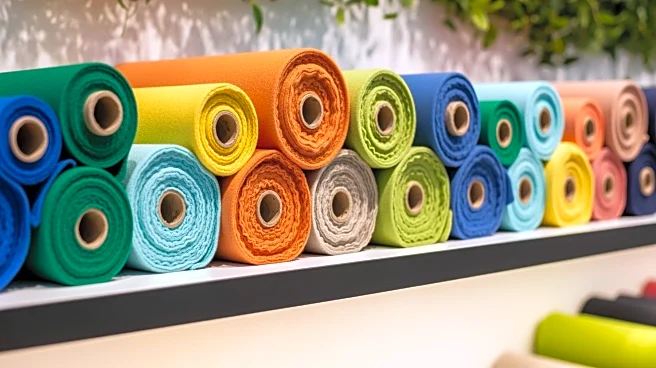What's Happening?
Recover, a Spanish company specializing in recycled cotton fibers, is expanding its operations by launching the production and commercialization of low-environmental-impact finished fabrics and garments.
The new offerings, 'Recover Fabrics' and 'Recover Blanks', aim to make sustainable fibers accessible to both large corporations and small emerging brands. 'Recover Fabrics' includes a library of over 50 fabrics, while 'Recover Blanks' offers a range of basic, unbranded garments. These initiatives are designed to address challenges such as supply chain complexity and inconsistent quality standards in the fashion industry.
Why It's Important?
Recover's expansion into finished fabrics and garments represents a significant step towards sustainability in the fashion industry. By providing accessible and scalable solutions, Recover is helping to reduce the environmental impact of textile production. This move could encourage more brands to adopt sustainable practices, potentially leading to a shift in industry standards. The availability of high-quality, low-impact fabrics and garments may also drive consumer demand for eco-friendly products, influencing market trends and promoting environmental responsibility.
What's Next?
As Recover scales up its operations, it may continue to innovate and expand its product offerings. The company's focus on sustainability could lead to new partnerships and collaborations with other industry players. Fashion brands and retailers may respond by integrating Recover's fabrics and garments into their collections, further promoting sustainable practices. The success of these initiatives could inspire other companies to explore similar strategies, potentially transforming the fashion industry's approach to environmental impact.
Beyond the Headlines
Recover's commitment to sustainability highlights the ethical considerations in the fashion industry, such as the need for transparency and traceability in supply chains. The company's efforts to democratize access to sustainable fibers may also contribute to social equity by enabling smaller brands to compete with larger corporations. Additionally, the focus on recycled materials raises questions about the lifecycle and recyclability of these products, prompting discussions on circular economy practices.









